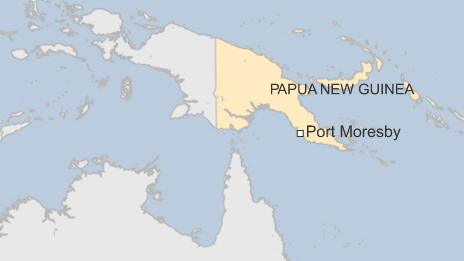UN urges action on Papua New Guinea sorcery attacks
- Published

The United Nations has urged Papua New Guinea to act to halt attacks against women - and sometimes men - over the belief that they are witches.
UN human rights adviser Signe Poulsen criticised the government for bringing back the death penalty, saying it had done nothing to stop the attacks.
She said a fair trial and certainty of punishment would be a better deterrent.
Rights groups have repeatedly accused the government of failing to protect women from such attacks.
In parts of the Pacific nation, deaths and mysterious illnesses are sometimes blamed on suspected sorcerers.
Ms Poulsen told a local workshop that there must be an "end to impunity" for those accused of carrying out such attacks.
"While we support strong measures against perpetrators, we do not believe that the death penalty is an effective measure," she was quoted as saying by local media.
"It is rather the certainty that perpetrators will be apprehended and dealt with through sound judicial processes that will serve as a deterrent."
Last year the government was widely praised for repealing the 1971 Sorcery Act, which recognised the accusation of sorcery as a defence in murder cases.
But at the same time the government introduced the death penalty, including five separate methods of execution, in an attempt to halt the attacks.
Papua New Guinea has not carried out an execution in six decades, but had retained the measure for such crimes as treason and piracy.
The killing of a 20-year-old woman in February 2013 sparked global outrage.
She was burned to death after being accused of sorcery.
Lower-level attacks are relatively common, according to observers.
- Published8 April 2013
- Published19 February 2013
- Published7 February 2013
- Published19 December 2023